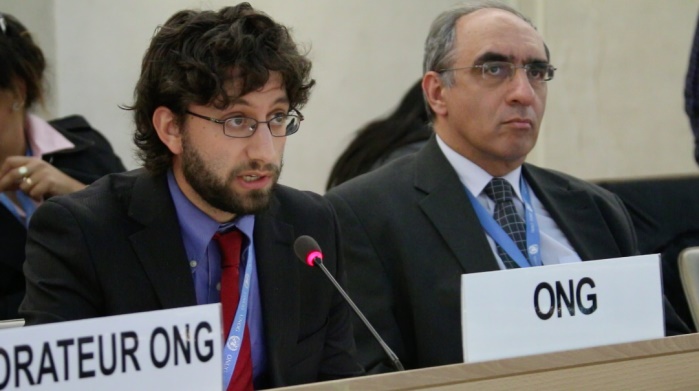On Wednesday 26 June, during the 41st session of the Human Rights Council, Americans for Democracy & Human Rights in Bahrain (ADHRB) delivered an oral intervention during Item 3 Interactive Dialogue with Special Rapporteur on Migrants. In the intervention, ADHRB raised concerns about the United Arab Emirates’ systematic abuse and exploitation of migrant workers under the auspices of the kafala system. Continue reading for the text of the intervention, or click here for a PDF.
Rapporteur Morales,
ADHRB would like to thank you for your report on the impact of migration on migrant women and girls, as well as your ongoing critical contributions to protecting the rights of migrants. In this vein, we would like to draw additional attention to the United Arab Emirates’ systematic abuse of migrant workers under the auspices of the kafala system, specifically to migrant workers’ vulnerability to exploitation by employers.
For example, in January 2019, around the time of the 2019 Asian Cup football match between the UAE and India, a video was circulated online showing an Emirati man locking several migrant workers in a large cage. In the video, the Emirati man asked the caged workers – who work for him – which team they support. When the workers stated “India,” they were told this was not good enough and because they were living in the UAE, they must support the Emirates. The eight men were released only after they declared their support for the Emirates. The Emirati man later claimed that the video was intended as a “joke.”
While the Emirati man was later arrested, this case is emblematic of the widespread and systematic exploitation of migrant workers under the Arab Gulf’s kafala systems, including of Asian and African workers in the construction and domestic help sectors. Broadly speaking, across the region, migrant workers lack legal protections and are forced to rely on support from their sponsors to find and change jobs.
Mr. Rapporteur, is abolishing the kafala system in the United Arab Emirates and the GCC countries enough to ensure adequate treatment of migrant workers, or are there additional steps these governments must take?
Thank you





